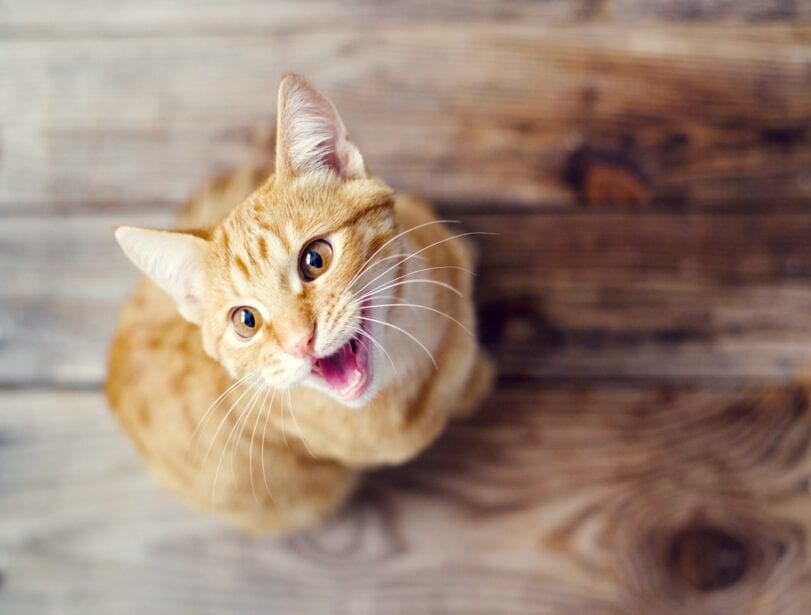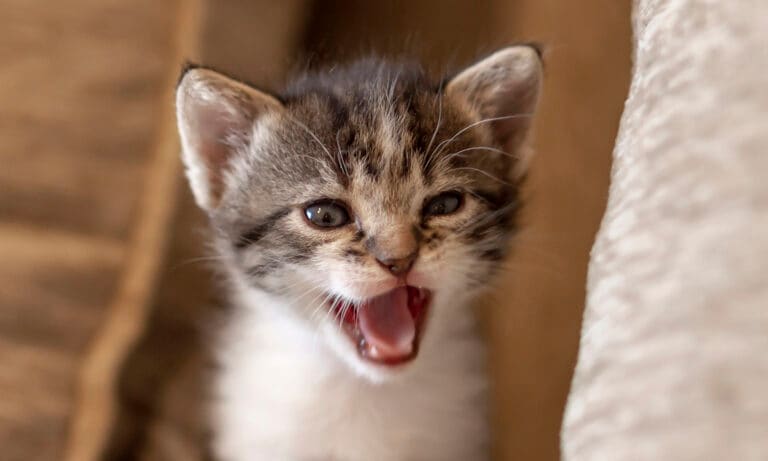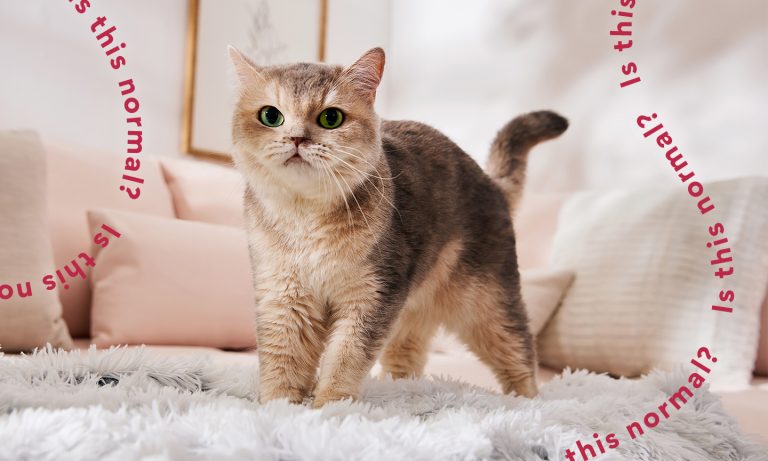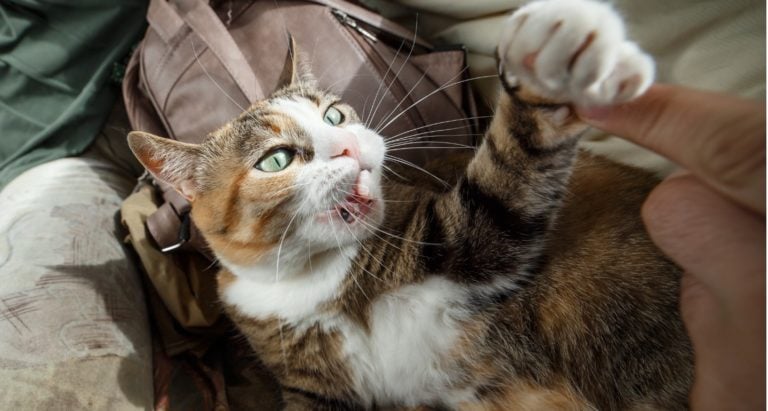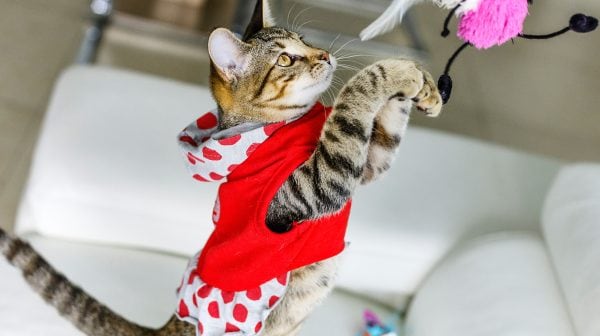Ever feel like your cat is trying to tell you something with all that meowing? Spoiler alert: They totally are!
So, why do cats meow, and what exactly do those vocalizations mean? Whether your cat has a lot to say or keeps things brief, we’re decoding the meaning of “meow” below.
Why Do Cats Meow?
Adult cats mostly meow to communicate with humans, not with other animals. This means your kitty has basically developed their own language to communicate their needs to you. But what are they trying to say?
They’re Saying ‘Hi’
When your cat meows as you walk into a room, it’s their way of saying “hello” or “I missed you.” Try replying to see if they feel like chatting with you. But if your cat ignores you, don’t take it personally.
“Some cats may like it when we talk to them, while others probably get annoyed rather quickly,” says Jennifer Coates, DVM, a veterinarian in Fort Collins, Colorado. “Watch your cat’s body language to figure out when they’re done. If they’re no longer looking at you or trying to leave, they’re probably ready for your conversation to end.”
But how can you tell the difference between a friendly greeting and a “help—something’s wrong”?
Consider the tone and duration of your cat’s meow, says Sandra Mitchell, DVM, DABVP, a veterinarian in Bangor, Maine.
“An emphatic greeting can sound distressed but is usually only heard for a few moments when you first encounter your cat,” she says. “But a distressed meow will usually be strident—loud and long.”
They Want Attention
You know when you're in the middle of a super important Zoom call, and suddenly your cat turns into an opera singer? That’s the classic “pay attention to me right meow" meow.
"Most often, cats meow to get a person's attention," says Dr. Coates. "Cats quickly figure out that meowing is a way to get us focused on them and what they want in the moment."
While cats have a reputation as being independent, most actively desire the company of their human family—whether that be a cuddle sesh or walk around the block (yes, cats can be leash-trained).
“Cats need a lot of enrichment time—at least as much as dogs do, but people just don't recognize it because cats aren't quite so in your face with their needs,” says Dr. Mitchell. “A good dose of both snuggle and playtime every day is helpful to enrich the life of cats.”
They're Hungry
We all get a little hangry sometimes, and cats are no different. If your fur baby is doing their best impression of a broken record around mealtime, they're probably saying, "Um, hello? This food bowl isn't going to fill itself."
Try these tips to reduce mealtime meowing:
- Set specific mealtimes (for example, 7 a.m. and 6 p.m.) and stick to them
- Never feed your cat while they're meowing—wait for at least five minutes of quiet
- Try food puzzles or treat-dispensing toys to make meals more engaging
- Consider an automatic feeder to remove yourself from the equation
- Place food bowls in quiet areas away from household traffic
They Want Something
The "I need something" meow (which may also sound like a chirp) tends to be more repetitive and urgent than your cat’s typical chatter. But don’t mistake frequent meowing for boredom.
“A big difference here will be context,” says Dr. Mitchell. “What else is happening in the environment? I don't think cats frequently meow strictly out of boredom; there is usually something else going on as well.”
Watch your cat’s body language closely. They may stare at what they want or even lead you right to it—a closed door, a toy stuck under the couch, an empty bowl, or even their favorite grooming spot.
They’re Wide Awake (and Think You Should Be, Too)
Ever wondered why your cat meows at night? There’s a good reason for it. Cats are crepuscular, meaning they’re most active at dawn and dusk. And they might not understand why you’re fast asleep at 5 a.m. while they’re ready to play.
While admittedly tough to block out, the worst thing you can do is acknowledge late-night meowing.
“This behavior can be challenging to deter, and our first response—telling them to shush—is actually the most counterproductive since, generally, they were looking for a response, and they got it,” says Dr. Mitchell. “As hard as it is, ignoring the meows is the best way to handle the situation at the time.”
With a few changes to your cat’s nighttime routine, Dr. Mitchell says you can minimize nighttime meowing by playing with your cat right before your bedtime to tire them out and providing interactive toys to keep them busy overnight.
They're Stressed or Sick
Excessive meowing can be your cat's way of saying "Hey, I'm not feeling great." If your usually quiet kitty suddenly becomes a chatterbox, they might be trying to tell you something's wrong.
“Any disease, injury, or change in their environment that causes stress or pain can lead to an increase or decrease in meowing,” says Dr. Coates. “Changes in the sound of your cat’s meow can also be a sign that something is wrong with your cat’s respiratory tract or larynx [voice box].”
Age can also be a factor. If you have a senior cat (11–14 years old) or a geriatric cat (15+), excessive meowing can be a sign of decline.
“Cognitive dysfunction [similar to dementia] is a common reason for older cats to start meowing more than normal,” says Dr. Coates. Poor eyesight or hearing may also lead to confusion and meowing in older cats.
But Why Is My Cat Meowing So Much?
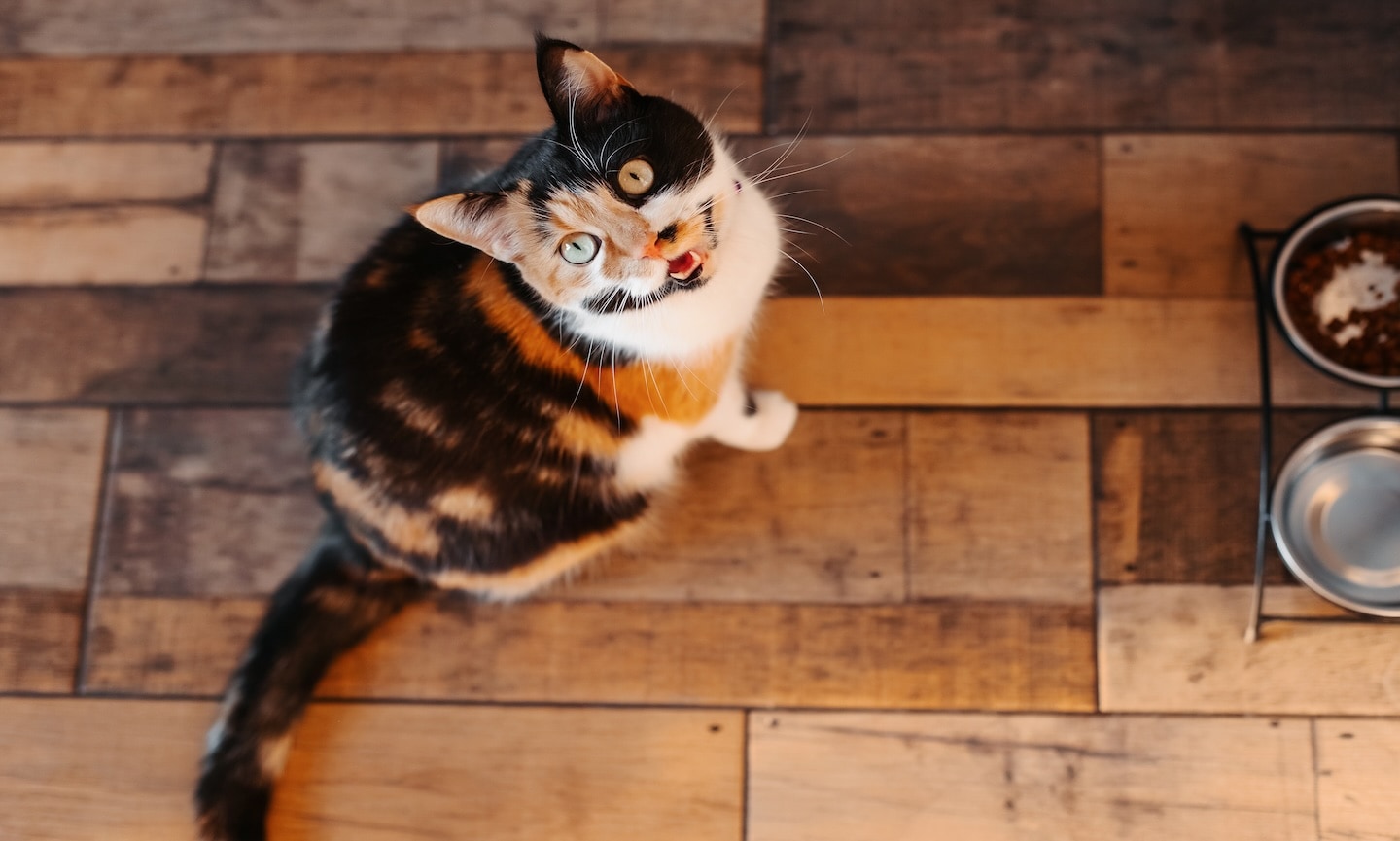
Adobe Stock/KIFOR PRODUCTION
Certain breeds are known for being more vocal than others, but individual personality plays a role more than anything else. Like humans, some cats talk a little, and others talk a lot.
"Every cat is an individual,” says Dr. Coates. “While breed can play a role in a cat's meowing, it's perfectly normal for some cats to meow more than others."
Some stereotypically talkative cat breeds include:
While breed and personality are factors, you know your cat better than anyone else. If their meowing has changed in intensity, volume, or duration, don’t ignore it.
“What's most important is to know what's normal for your cat," says Dr. Coates. "Take notice if your normally vocal cat becomes quiet or your quiet kitty is now meowing more frequently or more loudly."
When To Worry About Cat Meowing
While a chatty cat isn't usually cause for concern, if their vocalizations have become excessive or more urgent, it could be due to an illness or a medical concern.
Along with not-so-normal meowing, watch for these warning signs that your cat is sick—and keep in mind that distressed meows may also sound like a yowl or howl:
- Weight loss
- Increased appetite or thirst
- Restlessness
- Dilated eyes
- Signs of discomfort
- Urinating outside the litter box
- Changes in normal behavior
So, how do you know when it’s time to call the vet? Dr. Mitchell offers some sage advice:
“When in doubt, check it out,” she says. “A kitty that seems to be excessively meowing might be crying for a diagnosis and not just [being] a noisy kitty. If the signs persist more than a few days, or additional symptoms are present, it’s time for an exam and testing."
Don’t worry if you’re not fluent in feline just yet. With a little practice, you’ll be able to distinguish an “I’m happy you’re home” meow from a “Where the heck is my catnip banana?” meow. Plus, understanding your cat’s vocalizations can strengthen your bond and keep your kitty healthy and happy for many more years to come.
Share:
